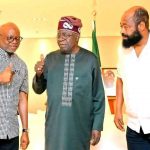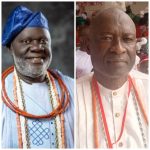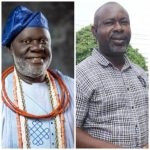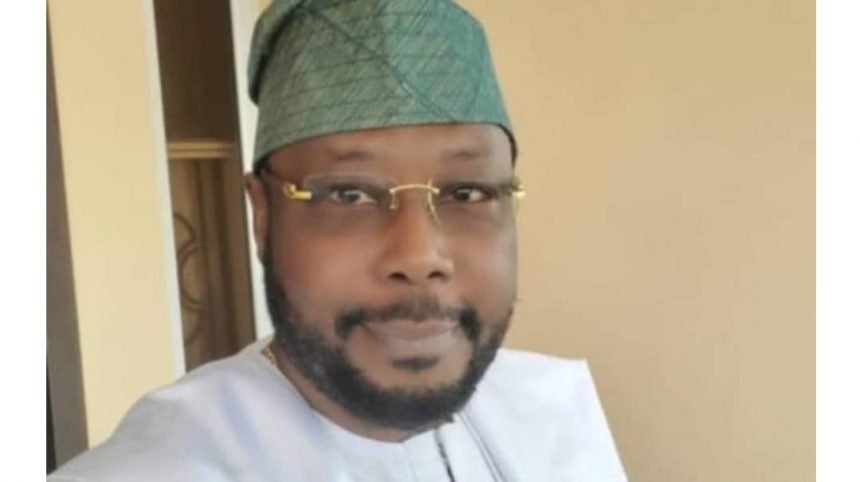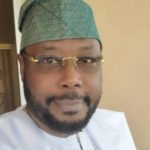A Rebuttal to the Narrative of Marginalization: Setting the Records Straight for the Sake of Unity
By Abayomi Awoniyi
I have read with concern the recent article by Comrade Adabara Abduljelil El-Okene, titled “The Political History of Nigeria and the Marginalization of the Ebira Ethnic Group”. While I appreciate the passion that informs the writer’s reflections, I must respectfully state that the conclusions drawn are both historically imprecise and politically hazardous. It behoves me, as a leader of Okun extraction to respond, not out of defensiveness, but out of a deep concern for the unity and progress of Kogi State.
The Obasanjo Era and the Issue of Ministerial Appointments
The assertion that the appointments of Okun Yoruba personalities during President Obasanjo’s administration were a form of ethnic favoritism is inaccurate. The appointments of Gen. David Jemibewon, Prof. Eyitayo Lambo, Chief Kola Jamodu, and Chief Bayo Ojo (SAN) were not products of ethnic proximity to the President but outcomes of an equitable power-sharing formula within Kogi State at the time. That tripod—East, Central, and West Senstorial Districts —ensured that since the Governor was from the East and the Deputy from Central, the West received the ministerial slot.
That arrangement worked well for years and gave all zones a sense of belonging—until newer political actors began to dismantle that delicate balance. Ironically, since that dismantling, it is the Okun people who have borne the brunt of federal-level exclusion for nearly 16 years, and yet we have maintained our dignity and calm.
Furthermore, let us not forget that these appointees were no mere tokens. They were distinguished technocrats and patriots of national repute—men like:
Prof. Eyitayo Lambo, one of Nigeria’s most respected health economists and health policy reformers.
Gen. David Jemibewon, a revered military officer and statesman with an impeccable record of public service.
Chief Kola Jamodu, a seasoned industrialist and captain of private sector enterprise, who at the time was Chairman of Nigerian Breweries and one of the country’s most accomplished corporate leaders.
Chief Bayo Ojo (SAN), an eminent legal luminary, and a past President of the Nigerian Bar Association (NBA).
Their appointments elevated not just the West, but the stature of Kogi State on the national scene.
The Matter of Senator A.T. Ahmed
Senator A.T Ahmed was a political colossus. We all miss him. To attribute his lack of a “lucrative” Senate committee chairmanship to presidential bias is to misunderstand the structure of our legislature. Committee positions in the Senate are not the direct prerogative of the President, especially not in a bicameral legislature that guarded its independence. The suggestion that President Obasanjo is to blame for this is simply misplaced.
Tinubu’s Era: Misjudged Allegations
The claim that “another round of exclusion” is occurring under President Bola Ahmed Tinubu is a sweeping and unsubstantiated generalization. It is true that every president relies on a mix of political calculations and personal loyalty when making appointments. However, it is important to clarify that the emergence of an Ebira governor under President Buhari was not a product of “timely intervention,” but the result of a sequence of political events, beginning with the tragic death of Prince Abubakar Audu and the constitutional resolution that followed. Asiwaju Bola Tinubu’s support for Audu was strategic. It was intended to defeat an incumbent governor. His choice of Hon. James Faleke as a running mate had nothing to do with undermining Ebira interest.
To suggest that the ongoing infrastructure presence of Hon. Faleke in Ebira land is a sinister prelude to a 2027 governorship bid is alarmist and insulting to the intelligence of the Ebira people, who are fully capable of making electoral decisions without external manipulation.
Of Forgotten Allies and Old Friendships
The complaint that notable Ebira allies of President Tinubu, such as Senator Ohiare and Alhaji Hadi Ametuo, have been “forgotten” is perhaps best addressed by reminding ourselves of the pressures and complexities of federal appointments. The gentlemen mentioned are fine and enlighten personalities. Every president faces the near-impossible task of satisfying a vast network of supporters. If anyone feels left out, the answer is not to inflame ethnic suspicions, but to reconnect through political channels and re-engage constructively. Tinubu, for all his strategic acumen, is not omniscient.
Strategic Unity, Not Siege Mentality
The writer’s call for strategic vigilance is commendable in tone but flawed in intent. To suggest a “Plan B” that frames the Ebira people as a community under siege is both regressive and divisive. What Kogi needs now more than ever is not ethnic polarization but genuine rapprochement between West, Central, and East Senatorial Districts.
We must harness our diversity as a source of strength. The current administration of Governor Usman Ododo, a proud son of the Ebira nation, stands as a testament to what unity can achieve. He is governing inclusively, and enjoys support from across party lines, a rare feat in the history of our state.
Governor Ododo has already taken commendable steps:
1.Prioritizing security and restoring relative peace across the state by strengthening the security architecture and restoring intercommunal harmony, particularly in areas previously affected by insecurity and politically motivated unrest
2.Clearing salary arrears and reestablishing public trust
3.Investing in education, road construction, and agricultural schemes
4.Emphasizing youth empowerment and digitization of state services
He is constitutionally entitled to a second term, and from what we have seen so far, he is on the right path to earning it. We must support him wholeheartedly, not distract his administration with accusations rooted in ethnic anxiety.
Conclusion: A Call for Wisdom
To my Ebira brothers and sisters, I say this with love and respect: No one benefits from a divided Kogi State. Let us not weaponize appointments or allow the bitterness of political disappointment to ferment into permanent mistrust.
Comrade Adabara’s fears are understandable but unfounded. The true enemies of progress are not Okuns, Igalas, or Ebiras—but poverty, disunity, and poor leadership. Let us continue to build bridges, not walls.
May God bless the Ebira people, God bless the Okun people, God bless the Igala people, God bless all the other ethnic nationalities, and God bless all of Kogi State.
Let us walk together, not apart, toward a future of shared prosperity.

